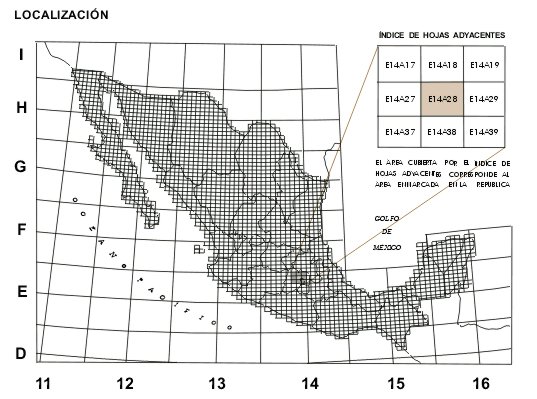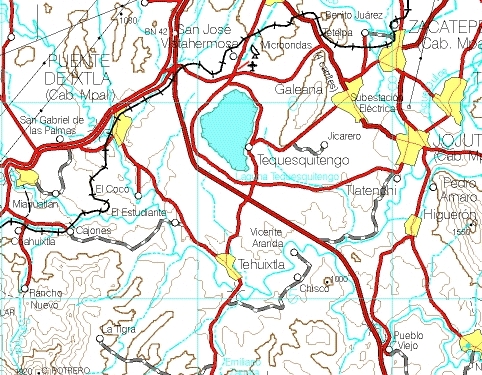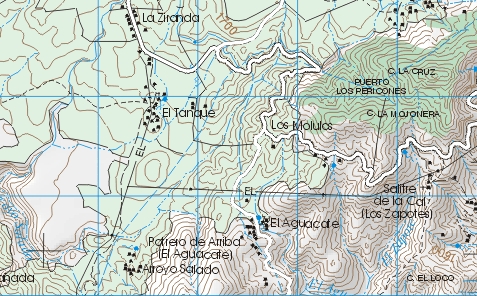 |
|||||||||||
| Main Page | |||||||||||
| ABOUT MEXICAN TOPOGRAPHIC MAPS | |||||||||||
|
Mexican topographic maps are developed by a federal government agency called “Instituto Nacional de Estadística, Geografía e Informática” known as INEGI which stands for Mexican Institute for Statistics, Geography and Information. They have a website, with an English version at www.inegi.gob.mx .
This is the key information of Mexican topographic maps:
Mexican Topographic Maps Identification Guide The INEGI service centers provide whatever assistance needed to get the map you want. We will use the 1:50,000 maps to explain the numbering and naming method used by INEGI. The same concept applies to other scales. The whole country is available and there is a Key Map as shown next which allows to locate the zone needed
A grid is placed over the country. The vertical divisions numbered 11 to 16 are the UTM zones in which Mexico lies. The horizontal sections with letters from D to I follow internal INEGI standards. Each of the small squares all over the map represent a 1:50,000 topographic chart. There are about 2400 to cover all the territory. The intersection of a vertical division with an horizontal one create a quadrangle which is identified by the combination of the respective section letter and number, like E14. Within each quadrangle a consecutive numbering system is used to identify each of the maps. The final identification number is then formed as follows:
The name of a noticeable characteristic within the map is added. In our case it is the town of “Villa del Carbon” so the complete identification of the map is:
E14A28 “Villa del Carbon”
Interactive Topo Map Identification The following link will take you to a sensitive Mexico Map that will help to find the topo map you are looking for. Just place the mouse on the area of interest, click, and the map numbers of the zone will show: http://geologia.cicese.mx/sist_inf_geo/ClavesINEGI/Simple.html
This is a section of a 1:250,000 map
And this on from a 1:50.000 map
|



